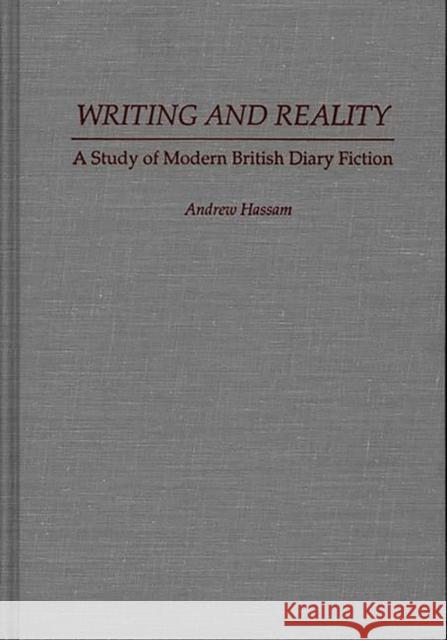Writing and Reality: A Study of Modern British Diary Fiction » książka
Writing and Reality: A Study of Modern British Diary Fiction
ISBN-13: 9780313285400 / Angielski / Twarda / 1992 / 192 str.
The diary format has long been utilized by novelists as a means of imparting reality to fiction. This volume analyzes the forms of diary fiction employed by a range of British writers in the post-World War II period. It provides new commentaries on the work in this genre of major fiction writers such as William Golding, Doris Lessing, John Fowles, and Malcolm Lowry and introduces the work of a number of less familiar novelists like Eva Figes, Ann Quin, Emma Tennant, and Rayner Heppenstall. These writers all have used self-conscious diary fiction to explore the relationship between their writing and the reality it aims to represent. Writing and Reality outlines the ways in which such work as a whole challenges the dominant cultural values of contemporary Britain.
The book begins by considering the context of this writing and proceeds to examine the textual strategies that distinguish the diary novel. It looks in depth at normative attempts to define the diary novel and considers the relationship between the nonfiction diary and its fictional counterpart. Later chapters analyze the texts according to specific issues arising from the fiction, including factuality, history, autobiography, and gender. The volume includes a comprehensive primary and secondary bibliography of the subject with supplementary listings of works by and about eight of the novelists whose work has received little serious critical attention. This insightful study will be of interest and value to scholars researching forms and genres of fiction, autobiographical writing, and contemporary British novelists.











